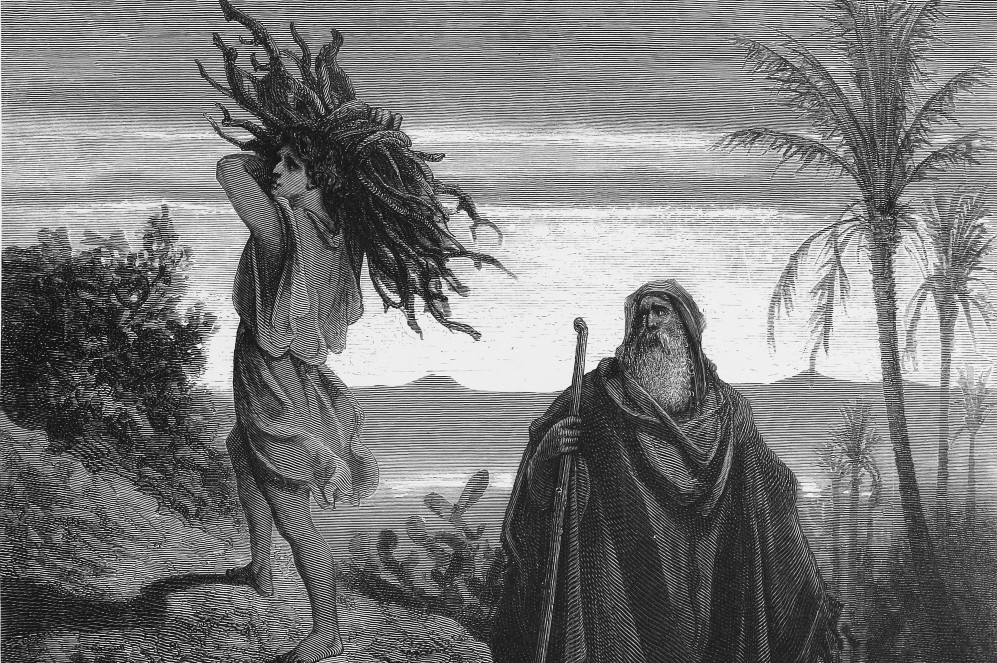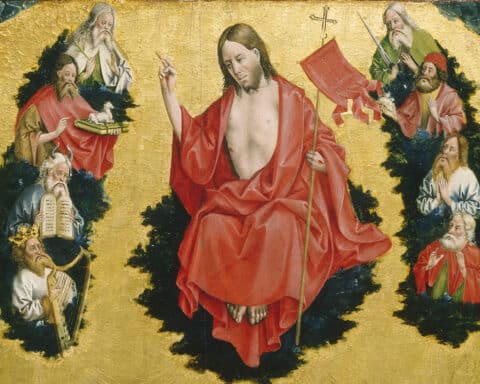
When we first meet Abraham in Genesis, he is still called Abram, and God has yet to call upon him to become Avrahim. Seemingly out of the blue, God called Abraham, asking him to pick up and leave his family and his home and move to a new land. Now, this takes some guts — to get up and follow a God one hardly even knows. But this was the beginning of Abraham’s faith. It was the beginning of his relationship with God, which grew and grew. Faith was the substance of this relationship, and only in faith could it flourish.
| August 7 – 19th Sunday in Ordinary Time |
|---|
|
Wis 18:6-9 |
This process of growth in relationship with God was not easy. Abraham had to learn a whole new way of life: God’s way. This way would make Abraham and his descendants distinct from all the nations surrounding them. Through Abraham’s faith, God would make his way known to all the nations. We are even hearing about it now!
As Abraham grew in relationship with God, he came to know the gratuitousness of God’s way, and how this gratuitousness is naturally marked by sacrifice.
For example, and as referenced in our readings, Abraham was asked by God to offer his son, Isaac, “whom he loved,” as a “burnt offering” to God (cf. Gn 22). This is a difficult story! We do not believe in a God who asks such things of us! Or do we?
The story of Abraham and Isaac is told only after we have been given the story of Isaac’s miraculous birth. Sarah had been barren her whole life and was now 90 years old. But God had promised Isaac a son — that he would no longer be Abram but become Abraham, or Avrahim. And Abraham had faith in this promise, in the gratuitous nature of God’s way.
Thus the difficulty of the story lies in understanding what sacrificial love is. Abraham was not asked to offer his son as a literal burnt offering but as a sacrifice, whole and entire, to God. Abraham, as the father of faith, was asked to hand this faith on to his son, Isaac.
And he was asked! Our English translation loses an important Hebrew word: “please.” When God asks Abraham to offer Isaac, his miraculous and beloved son, he says, “please.”
Faith is a free choice. God offers himself to us, and we respond. The relationship is entirely gratuitous and sacrificial. It is wholehearted, in response to the whole of God.
When Abraham offers Isaac up to God’s way, he is also offering himself. He had just become Abraham, the father of a “beloved son” in his old age, the father of a son whom he needed to himself be the “father of multitudes.” In offering Isaac, Abraham also offers himself, whole and entire, to God and his way.
In this, Abraham is our patriarch. We are the “sands on the sea shore,” the “multitude.” But our faith has something new, something Abraham only saw foreshadowed “in secret.” We have the Beloved Son. We have God offering himself to us, whole and entire. We have but to respond in faith, and so to offer ourselves, whole and entire, to be transformed by God’s cruciform yet gratuitous way.
Catherine Cavadini, Ph.D., is the assistant chair of the Department of Theology and director of the M.A. in theology degree program at the University of Notre Dame.





